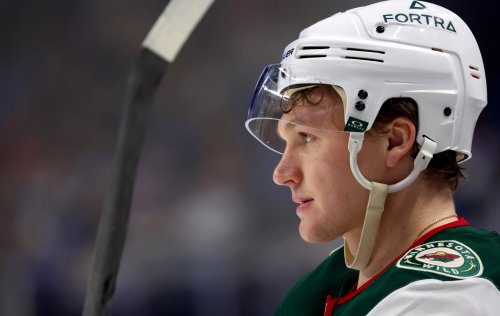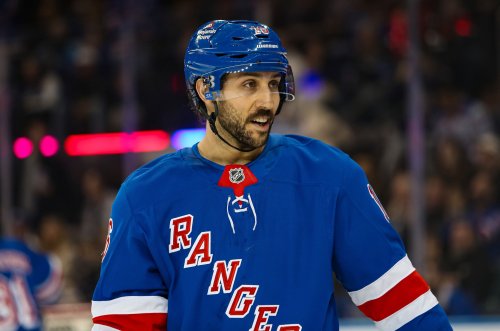
The role of a backup goaltender in the NHL is changing. Once confined to playing only in the second night of back to backs and in case of injury, backup goaltenders have been asked to shoulder an increasing load so that the starting goaltender can stay rested and perform at his highest level. However, the starter is the starter for a reason, and there is usually a drop off in performance going from the starter to the backup (unless you are the St. Louis Blues) potentially costing the team valuable points in the standing.
So, what is the proper balance? How does one even begin to determine? For the sake of my analysis, I decided to look at the final 4 teams in the Stanley Cup Playoffs for the past two years. Looking merely at the Stanley Cup winners or even the finalists seemed too small a sample size and too prone to being influenced by an outlier. So, on the eve of the regular season starting, let’s look at those 8 teams and how they split their starts.
2017 Ottawa Senators
Oh the Ottawa Senators. Currently a train wreck you can’t look away from, it is hard to remember that this team was just 1 goal away from the Stanley Cup Finals just 16 months ago. Their starter was Craig Anderson, a veteran goaltender who has spent time with the Chicago Blackhawks, Florida Panthers, Colorado Avalanche, and Ottawa. In the 2016-17 season, the then 36 year old Anderson started only 40 games for the Ottawa Senators, due largely to absences taken to care for his wife who was sick with cancer. In his absence, Mike Condon started 38 games with Andrew Hammond starting 4.
Result: starter 40 games, backup(s) 42 games.
2017 Pittsburgh Penguins
Matt Murray and Marc-Andre Fleury. That enviable goalie depth has only been made more enviable in light of Fleury’s recent run with Vegas. Murray first came to prominence the previous post-season in light of Fleury’s injuries, and took the slight majority of starts that regular season with 47 starts. Fleury, that consummate professional, took 34 starts with Tristan Jarry taking the remaining 1. After that, we all know the story. Fleury stepped in and saved a series and Murray took them to the promised land.
Result: starter 47 starts, backup(s) 35 games.
2017 Anaheim Ducks
Given the predictions I’ve been reading for the Ducks for the 2018-19 season, it is hard to remember that the Ducks were in the Western Conference finals as recently as 2017 after a dramatic “Battle of the Orange” in which the Ducks defeated William V Prince of Orange the last Stadtholder of the Dutch Republic the Edmonton Oilers. John Gibson, he of the new 8 year contract, took 49 starts and Jonathan Bernier, Toronto exile, took the remaining 33.
Result: starter 49 starts, backup(s) 33 games.
2017 Nashville Predators
I recently head Nashville called the “Vegas of the East”. I can only imagine that means that their water resources are running precariously low and that the city will be abandoned in my lifetime. Anyway, Pekka Rinne, the Finnish goaltender who inspires so much debate, started 61 games (finally, a heavy workload!), Juuse Saros started 19 games, and something called Marek Mazanec started 2 games.
Result: starter 61 games, backup(s) 21 games.
2018 Tampa Bay Lightning
This is the team I had pegged to win the Stanley Cup last year. They are stacked at forward, their defensive depth is enviable, but their only question mark was in goal. After moving on from Ben Bishop and his fragile groin, the net was turned over to then 22(!?!) year old Andrei Vasilevskiy (that second “i” in Vasilevskiy is just cruel). How’d the “kid” do? In a word, exceptional. In 64 starts, the “kid” posted 44 wins with a .920% save percentage. Louis Domingue and Peter Budaj took the remaining 18 starts.
Result: starter 64 games, backup(s) 18 games.
2018 Washington Capitals
Before the Stanley Cup keg stands, the Cup spooning, and pushups in the fountain, the Capitals actually had a good regular season posting 105 points. Braden Holtby took the bulk of the starts with 54, but Philipp Grubauer (now of the Colorado Avalanche) played an important role down the stretch starting in 28. In fact, Grubauer held the net as the Capitals rolled into the playoffs only giving way to Holtby when the Blue Jackets jumped out to a 2-0 series lead. After that, Holtby and the remainder of the Capitals (finally) lived up to their potential and lifted Lord Stanley’s Cup.
Result: starter 54 games, backup(s) 28 games.
2018 Winnipeg Jets
Connor Hellebuyck started 64 games, Steve Mason 12, Michael Hutchinson 3, and Eric Comrie 3. The less said about the Jet’s post season the better.
Result: starter 64 games, backup(s) 18 games.
2018 (Las) Vegas Golden Knights
Our old friend Marc-Andre Fleury started 46 games for the expansion franchise as they defied all of the odds. Malcolm Subban was rescued from the Boston media and fans when (Las) Vegas picked him off the waiver wire and he ended up starting 19 games. Maxime Lagace and Oscar Dansk started the remaining 17.
Result: starter 46, backup(s) 36 games.
Results
What have we learned? Doing math simple enough that even I can calculate, the average starter only started about 53 games. That is lower than I expected. For comparison’s sake, Dubnyk started 63 games in 2016-17 and 59 games in 2017-18. In fact, the only teams whose starter started 59 games or more were the 2017 Predators, 2017 Lightning, and the 2018 Jets. None of those teams ended up winning the cup and only the Predators made the Stanley Cup Final. Two years and eight teams is admittedly an incredibly small sample size, and there are a multitude of other factors to consider, but the results suggest that head coach Bruce Boudreau and the Wild should give Dubnyk more rest to ensure he is ready to go in the playoffs. Can Alex Stalock and Andrew Hammond handle an increased workload? Will Boudreau trust them enough to even try? All we know is that Dubnyk, the rock upon which the Wild build their church, will be in the net Thursday night against the Avalanche. After that, only time will tell.
All statistics courtesy of NHL.com unless otherwise noted.
Think you could write a story like this? Hockey Wilderness wants you to develop your voice, find an audience, and we'll pay you to do it. Just fill out this form.








Recommended Comments
There are no comments to display.
Join the conversation
You can post now and register later. If you have an account, sign in now to post with your account.
Note: Your post will require moderator approval before it will be visible.